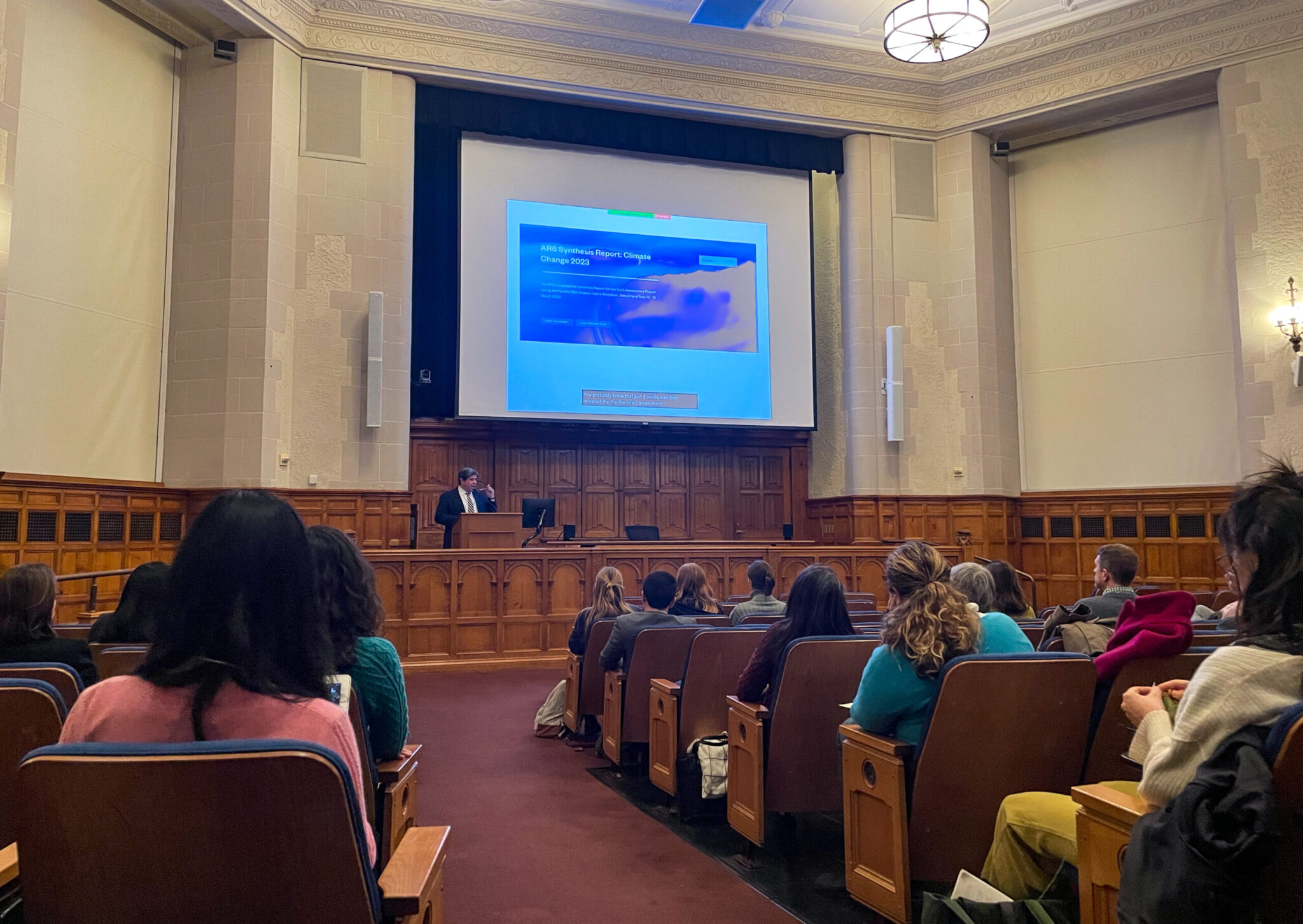Yale School of Law hosts joint environmental law and food policy conference
Occuring in person for the first time since the pandemic, “Rethinking Resilience” brought students and speakers to examine the crossroads of climate and food.

Hanwen Zhang, Contributing Photographer
Students and speakers from across the country spent a weekend at the Yale Law School for its annual environmental law conference, which began on March 31 with a new multi-disciplinary twist.
For the first time in history, the 2023 New Directions in Environmental Law Conference was held as a joint event with the Food Law Student Leadership Summit, bringing together experts from both fields to discuss the intersection of climate and food policy. The three-day event — titled “Rethinking Resilience” — returned in person for the first time since the COVID-19 pandemic to offer a slate of talks about climate resilience, policy simulation events and networking opportunities for attendees.
“I found it really … inspiring and motivating to see so many people that are concerned about this field,” said Molly Oberstein-Allen, a student at Columbia Law School who attended the conference. “Seeing … the people who are doing work in so many different aspects of it has just been really, really exciting.”
At an event that brought two fields of law together, the panels embraced a diversity of issues in the climate and food world. Discussion topics ranged from ocean conservation to Indigenous sovereignty and sustainable business practices, with panelists who drew on their expertise in nonprofit sectors, private corporations and legal research.
Keynote speaker Clifford Villa, deputy assistant administrator for the Environmental Protection Agency’s Office of Land and Emergency Management, opened the event with an address that married concerns about environmental justice with issues of food access. New climate patterns posed detrimental impacts to agriculture, he explained, drawing a direct line from increasingly erratic weather patterns to the mounting food insecurity across the globe.
“If you went back to that first assessment report on climate change in 1990, [the IPCC] knew that it would affect lives; they knew it would affect … access to food and fuel and medicine,” Villa said.
Today, access to food is startlingly unequal. Villa noted that roughly 10 percent of US households are food insecure. Of those, 16 percent are Latino, 20 percent Black and 25 percent Native American. Nearly 39.5 million Americans currently live in food deserts — places where barriers to transportation, income inequality and discriminatory urban zoning prevent access to fresh food from grocery stores.
Villa added that the root of the problem was not so much insufficient food supply as inefficient food transport and waste. To increase access, he advocated for grassroots urban agriculture efforts and spotlighted an EPA-led soil testing program that had been unveiled in an industry-impacted neighborhood in Eugene, Oregon.
The final speakers of the weekend trained their focus closer to home, with the city’s director of food policy Latha Swamy and Mayor Justin Elicker speaking about developments in New Haven.
Swamy explained that the city’s food policy department — among the first in the country — has helped guide local residents through municipal land acquisitions and food business start-ups. The department has also created the community advisory board, a group of 60 members representing underprivileged neighborhoods, from which the city will solicit feedback for future policy.
Mayor Justin Elicker affirmed his commitment to sustainability but foregrounded the difficulties of balancing the city’s immediate necessities with longer-term visions of environmental care and responsibility.
In a city embattled by rising homicide rates, homelessness and shrinking operating budgets, he pointed out that local governments lack the “capacity” to fulfill all of their desired climate efforts. He urged environmental activists to work with him while recognizing that large-scale change will also call for action on the state and federal levels.
“It’s not that simple,” Elicker said. “These challenges are very, very complicated.”
The need for more legislative action found practice in the event’s policy simulations, where attendees had the opportunity to translate panel discussions into the amendments and laws they wished to see.
Gabriella Mickel ENV ’24, student at the Elisabeth Haub School of Law at Pace University and the Yale School of the Environment, applauded the “creative … municipal policy and legal solutions” but said she hoped for more statutory law that would support environmental justice initiatives.
According to event organizer Gina Hervey ENV ’22, who is also currently studying at Pace’s law school, this connection between topics of food and the environment provided a space for unique conversations that synthesized many of climate change’s challenges.
As a Detroit native and master’s student of public health at the University of Michigan, Asha McElroy said she walked away from the conference with new ideas about increasing her community’s access to nutritious and affordable foods.
“To hear the different perspectives on food sovereignty … was really amazing,” McElroy said. “It helped… me to shape my definition of food sovereignty.”
The Yale Center for Environmental Law and Policy was established in 1994.







